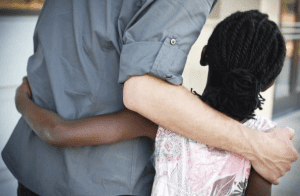 In a world that bombards us with image and fake standards, it is hard not to get caught up in looking a certain way as a parent. It can be how we look to the outside world as our toddler is flailing on the supermarket floor or as moms caught-up in ridiculous “mommy wars”. The most damaging, I think, is inside the walls of our homes.
In a world that bombards us with image and fake standards, it is hard not to get caught up in looking a certain way as a parent. It can be how we look to the outside world as our toddler is flailing on the supermarket floor or as moms caught-up in ridiculous “mommy wars”. The most damaging, I think, is inside the walls of our homes.
Managing a certain image to our kids can be the most tempting in all of our relationships. If our words and actions try and imply to our kids that we have it all together, it will eventually implode on our imperfection. In such intimate interactions, they are bound to see our flaws. Often. When it comes to our own flaws, the foundation we lay when they are little will make a huge difference as they get old enough to verbalize the truth. When they are teeny tiny, begin practicing apologies when you are wrong, especially, if this is foreign to you or your home of origin. The benefits will be lifelong. Here are few.
1) It establishes your authority
Somewhere in our minds, we think admitting we were wrong to our kids will make us appear weak or inept and therefore poor leaders for them. I think just the opposite is the case. They will see your flaws. They will know you are wrong. Not just in the big mess-ups but in the small ones, too. Admitting we were wrong and apologizing to our children shows them we are strong enough to show we aren’t perfect. In their little minds, it makes us just and fair and worthy of respect. It will help them to trust our authority in all areas of life.
2) It models accepting responsibility for actions
When we apologize to our kids for even the small things like our attitudes and tones, it helps them learn to take responsibility for their actions. People often say we aren’t raising children, we are raising adults. I think about this in moments when I am tempted to not apologize for something that seems small. I want my kids to grow up to be productive, compassionate leaders in society. I want them to affect others lives with good. That means they need to take responsibility for their actions. No better place to learn that than from us.
3) It leads to intimacy
I think when people say they want to be friends with their kids, what they are actually craving is emotional intimacy with them. There are few things that build intimacy with my kids more than admitting I was wrong. Going to them in gentleness and apologizing, they see that I care enough about our relationship to make things right. Little moments of wronging each other build walls and distance between us. We all feel closer after there have been softened hearts, apologies and snuggles.
Our children will learn best how to apologize from us. Choose your words carefully. In our home, apologies have to be specific. We don’t just say we are sorry. What are you sorry for? Identify the heart motivation behind the action, too. For example, raising my voice isn’t wrong because there are many contexts that it can be acceptable (like cheering at a football game). The anger behind it was what was wrong. We always make sure the person on the receiving end doesn’t say “it’s okay” either. Being wronged isn’t ok, but forgiveness is. Modeling apologies and teaching our kids how to apologize themselves is a wonderful gift to give them.

















